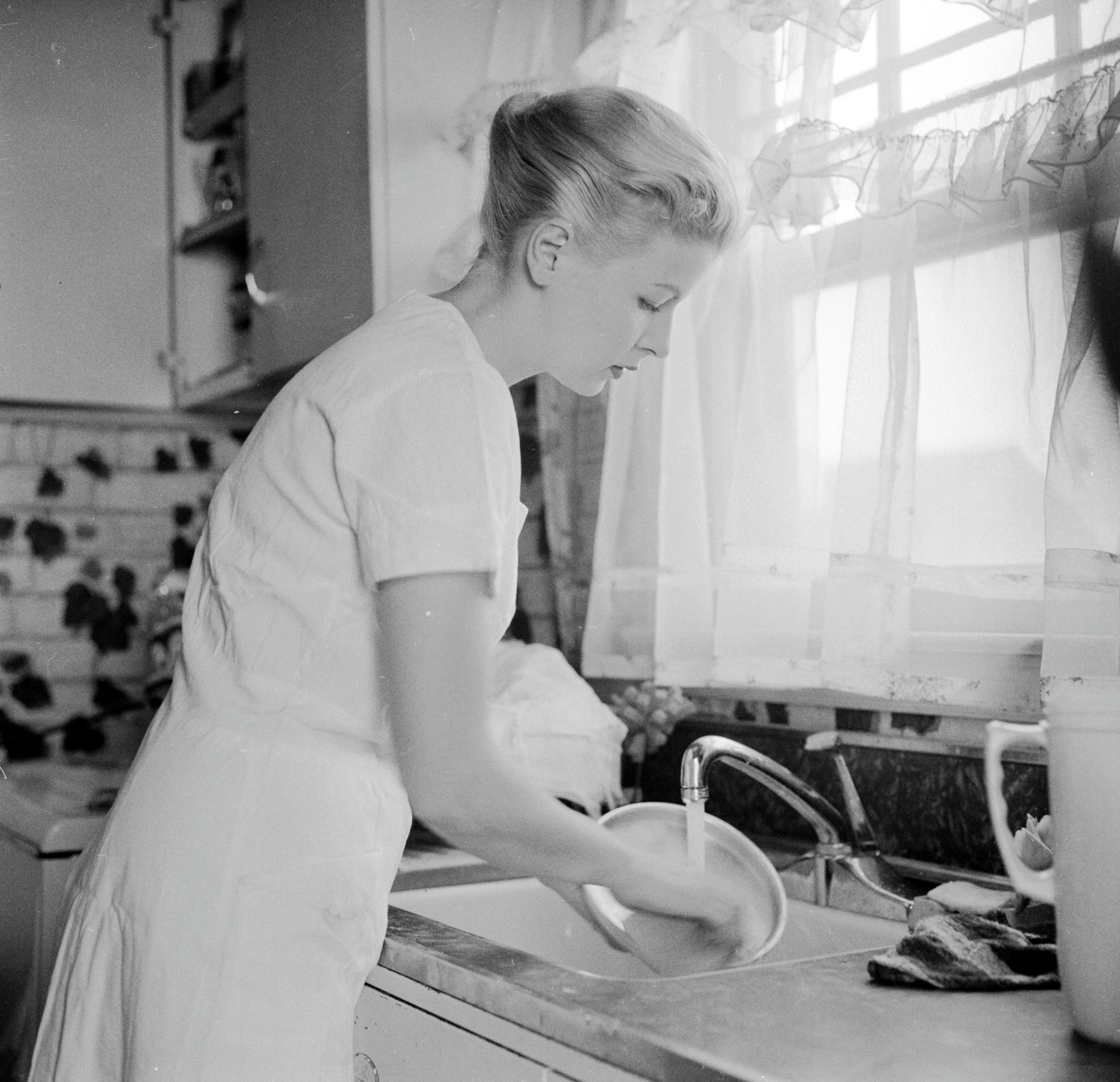
When President Obama addressed the gender-based wage gap during his State of the Union address last week, women cheered and Congresswoman Rosa DeLauro even gave out high fives. Obama called on Washington and businesses to help women succeed at work and “do away with workplace policies that belong in a Mad Men episode.” However, the President forgot to name a key constituency in his call to help women succeed: husbands.
All the workplace policies in the world aren’t going to get women to parity unless we do away with our Mad Men-era policies at home, too. Despite the fact women are the sole or primary source of income in a record 40% of U.S. households, they still do the majority of housework and childcare. According to the Pew Research Center, during an average week[OK? The study, if I’m looking at the right one, seems to have measured weeks rather than days.], women spend more time cleaning, doing laundry, and preparing food then men do. Men, on the other hand, spend more time watching television than women do. And even in households where the woman is the sole breadwinner, the labor division is far from equal. Men who stay home average 18 hours of housework per week, while their working partners average 14. Stay-at-home mothers, though, average 26 hours of housework. Their working partners average just a third of that time. America has a housework gap, and it’s fueling the gender gap at work.
Research indicates there is a direct and negative correlation between housework and the wage gap. One theory, from research in The Journal of Human Resources, suggests this could be employers’ negative reactions to women who appear dedicated to household activities. It could also be that many employers believe mothers are less committed to their jobs than other employees, as Shelley J. Correll, a sociology professor at Stanford University, posits. As a result, employers are reluctant to hire them and offer them high salaries. The “mommy penalty” is real. The wage gap between mothers and non-mothers is greater than that between women and men, according to the advocacy group MomsRising.
It appears that in 2014, we have high expectations of what a woman can accomplish at work, but we still have 1950s expectations about her role at home. But it’s time to rethink and renegotiate who does what where. Men who have opted out of housework should lean in at home so their wives can lean in at work. And they should advocate for, and take advantage of, family-friendly policies such as paid sick days, paternity leave, and flex benefits in order to create a more equitable arrangement at home.
If we truly believe that, as Obama said, “when women succeed, America succeeds,” then we need to stop ignoring the housework gap. Laundry and dirty dishes may not be standard agenda items for our legislators and business leaders, but they should be. After all, a woman can’t have it all if she’s too busy doing it all.
Liz O’Donnell is the author of Mogul, Mom & Maid: The Balancing Act of the Modern Woman.
More Must-Reads From TIME
- Dua Lipa Manifested All of This
- Exclusive: Google Workers Revolt Over $1.2 Billion Contract With Israel
- Stop Looking for Your Forever Home
- The Sympathizer Counters 50 Years of Hollywood Vietnam War Narratives
- The Bliss of Seeing the Eclipse From Cleveland
- Hormonal Birth Control Doesn’t Deserve Its Bad Reputation
- The Best TV Shows to Watch on Peacock
- Want Weekly Recs on What to Watch, Read, and More? Sign Up for Worth Your Time
Write to Liz O'Donnell at Hello_Ladies